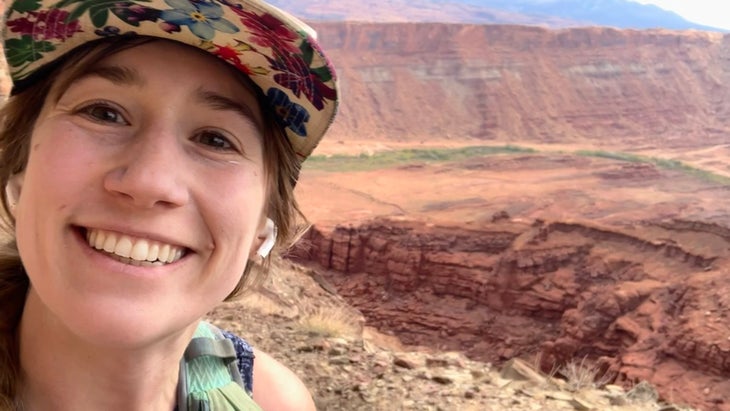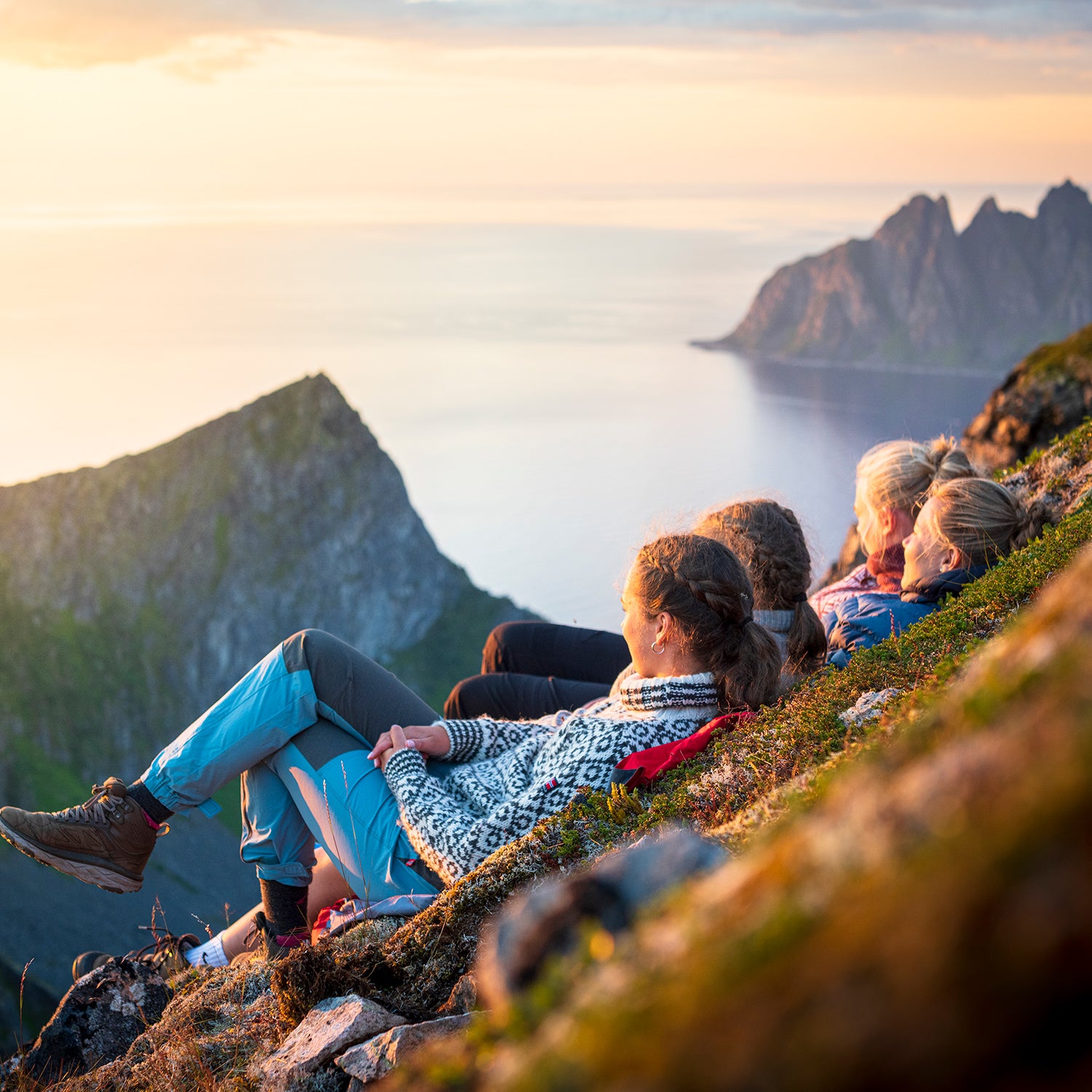If it weren’t for travel, Margie Goldsmith, age 80, says she would have died at least three times by now. Ten years ago, the globe-trotting author and travel writer endured a risky surgery for pancreatic cancer. Two years later, the cancer returned. A few years after that, Goldsmith was diagnosed with lung cancer. She survived it all, she is sure, because she’s been a world traveler for 50 years.
You’ll be forgiven if you’re a little skeptical. After all, globetrotting isn’t often a prescription for the ill or infirm. But recent research suggests that travel and tourism could have powerful impacts on your health and even longevity.
How Travel Helps to Slow Aging
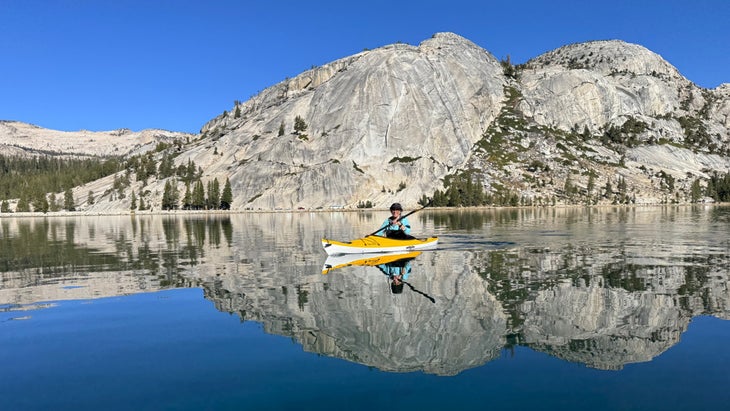
According to a this fall by Fengli Hu, a PhD candidate at Edith Cowen University in Perth, Australia, travel could be a powerful tool for slowing down the aging process. Hu’s main theory is fairly straightforward: Many of the lifestyle practices medical and mental-health experts endorse—like social engagement, appreciating nature, walking, and learning new things—are intrinsic to travel.
But the novelty of Hu’s research is that it creates a foundation for thinking about travel in terms of entropy. Travel, she writes, is a way to maintain a “low-entropy state”—in other words, a state of optimal health and efficient bodily function. Since she published the paper, dozens of media outlets have covered her work.
In a video call with ���ϳԹ���, Hu says she didn’t expect so much attention, especially given that the research is only theoretical at this point. She’s just begun to set up the related experiments, which will be completed in 2025. But the interest makes sense.
She says, “Many people are looking for a way to keep young and healthy, and travel can be a cost-effective way to improve their physical and mental health and slow down the aging process.” It’s cost effective, she says, because folks don’t necessarily have to travel to pricey, far-flung locations to experience the benefits.
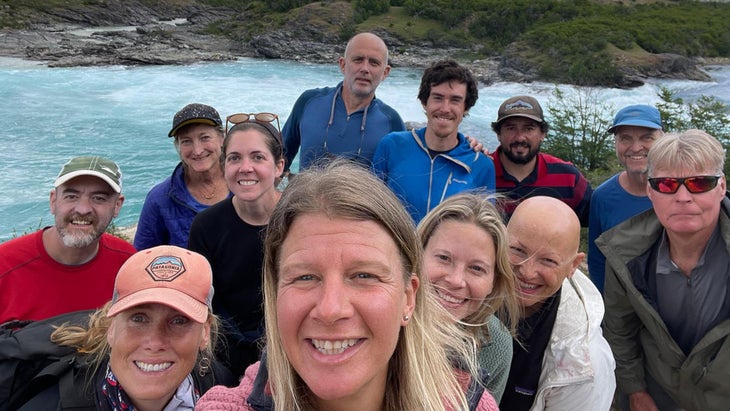
The theory of entropy comes from physics; it refers to the natural tendency of systems to move from a state of organization and order to one of chaos and disorder. Entropy has also been used as a framework for thinking about aging and disease. When you’re young and healthy, your internal systems run smoothly. That’s order. As you age, cellular mutations and dysfunctions proliferate. That’s disorder—a high-entropy state.
Entropy almost always moves in one direction, Hu says, “but can be mitigated or slowed down with certain measures.” Being a tourist, she says, may be one.
Travel—that is, relaxing, leisure-focused travel—has the power to reduce stress, it encourages exercise, and it forces you to meet and socialize with new people. All of that keeps you sharp and optimizes your body’s performance and efficiency. As a result, Hu says, it could help you stave off physical and mental decline and potentially live longer.
How Travel Relieves Stress
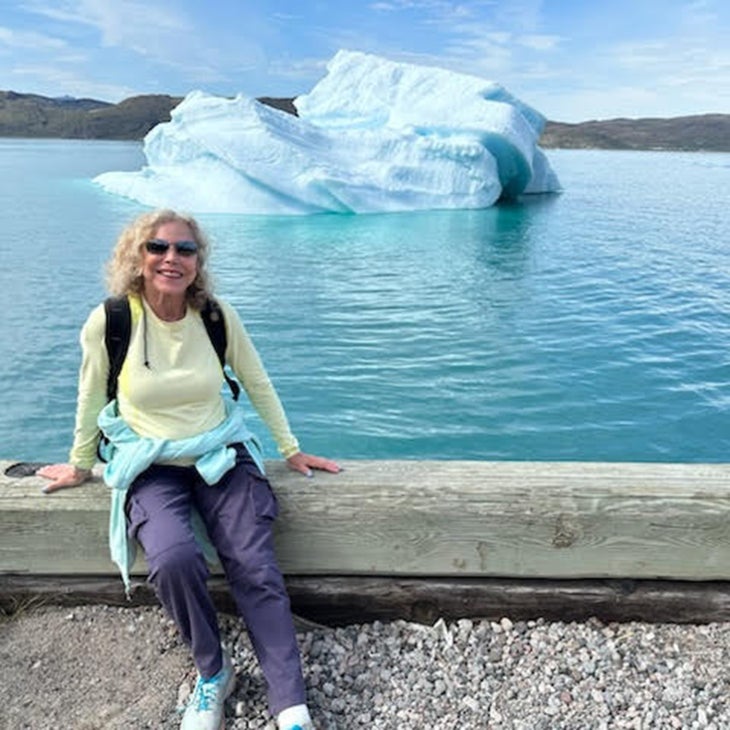
Goldsmith started traveling when she was 32, in the wake of a nasty divorce. She needed something to pull her out of depression, and she’d always wanted to go to the Galapagos. So, she went.
“They say you can move a muscle, change a thought,” Goldsmith says. “Well, it turns out you can also move your location and change a thought.”
The change was exhilarating. Since then, Goldsmith has traveled to 149 countries. Travel has made her a more generous, compassionate person, she says. It’s also made her more resilient.
“I look at people my age, and they look like my grandmother,” she says. “They’re bent over with arthritis and they’re not moving. That will never be me. Travel gives you a more active life, a bigger life. It will keep you young.”
So far, experimental studies seem to support both Goldsmith’s experience and Hu’s research. One of the best-known is the Helsinki Businessman Study, a 50-year experiment involving more than 1,200 Finnish participants who filled out lifestyle and habit questionnaires between the 1960s and 2010s. In a , Timo Strandberg, MD, PhD, found a strong correlation between vacation time and longevity.
Participants in the intervention group—600-plus men who were given a strict health-and-nutrition regimen during the early years of the study—had a 37 percent higher chance of dying before their mid-70s, if they took fewer than three weeks of vacation per year. Those who took more than three weeks of vacation per year lived longer. Why?
“These men who had less vacation were more psychologically vulnerable to stress,” Strandberg said in a video call with ���ϳԹ���. That stress included participants’ family and work obligations, as well as the added pressure to stick to a structured health-and-fitness regime. Taking more vacation seemed to benefit participants in the intervention group, likely by keeping their stress in check, Strandberg says.
Surprisingly, the amount of vacation time participants took seemed to have no correlation to longevity in the control group—those who weren’t given a health and fitness routine to stick to. The upshot? Giving yourself extra rules and routines can be stressful, no matter the intention. And the more stress, obligations, and prescribed regimens you have in your life, the more critical vacations may be. (Fitness fanatics, we’re looking at you.)
The Case for More Frequent Vacations��
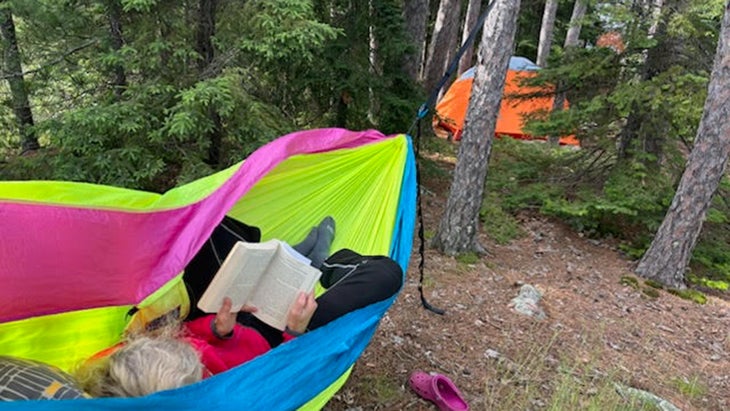
Stress of any kind can have cumulative negative effects.
“One theory is that your acute stress—which can be good and healthy and help you avoid danger and so on—can turn into chronic stress,” Strandberg said. “Then that will show up in biological terms and in different markers in the body.” A vacation has the potential to act as a reset, chipping away at your total stress load and bringing it back down to healthy levels.
Strandberg adds that while the health benefits of a vacation include stress relief and lower cortisol levels, the effects are only temporary. As a result, he recommends taking several four- to five-day vacations throughout the year rather than a single three-week vacation. That way you’re continually keeping your stress in check rather than saving it all up for a single blow-out.
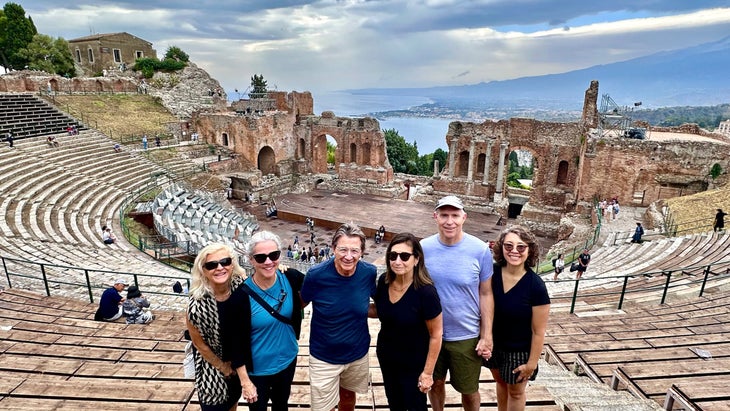
Kiki Keating, a travel curator and trip guide based in New Hampshire, is a firm believer in frequent travel. Keating, who identifies as “a very young 62,” just hiked 90 miles along the Portuguese coast and has a handful of other trips—including an overseas tour she does every year with her 86-year-old mother—on the docket for the coming year. The travel keeps both active, and it gives them something to look forward to. That sense of purpose, she says, is key to both living long and facing setbacks with determination. She’s watched many people use an upcoming trip as a life ring to pull out of depression or weather an injury or illness.
Goldsmith is one. Her first pancreatic surgery was extremely dangerous, a six-hour operation that only 25 percent of patients survive. But she felt she would make it; she had places yet to see.
As she recovered, dreams of travel motivated her to keep moving. “As soon as I got out of the hospital, the first thing I did was travel,” she says. Likewise, when facing a knee-replacement surgery earlier this year, she booked trips to Ireland and Scottsdale to give her something to look forward to—and motivate her to do everything she could to recover faster.
Travel Keeps Your Mind Sharp
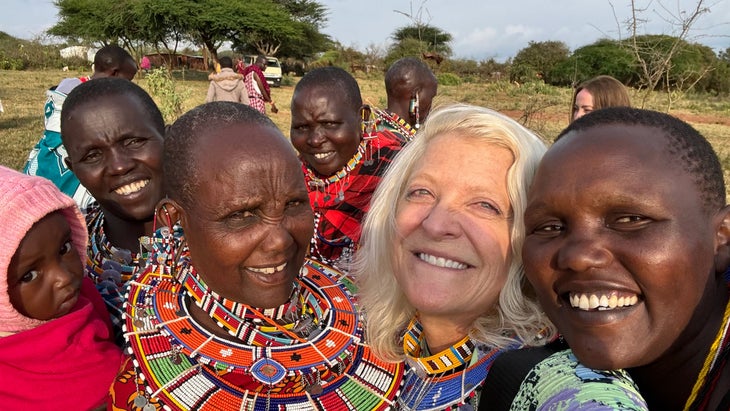
But you don’t have to be in advanced years to benefit from frequent travel. Keating has also seen it impact how her adult children face challenges and deal with stress.
“Travel helps you to be more relaxed when you’re adapting to something new,” Keating says. “When you go to a place with a new culture and a language you don’t speak, it can feel hard at first. Then, after a day or two you’re like, ‘Oh, I take this metro and follow this red line and go to the blue line, and I know how to say hello, and this is where I like to eat.’ You remind yourself you can learn new things and adapt, and that gives you confidence.” Today, she says, her kids—all of whom traveled with her when they were younger—are good at taking adversity in stride. That’s a tool they’ll use for the rest of their lives to minimize stress, and it could pay big dividends in terms of wellness.
It’s not just about stress, either. A small 2018 study by Craig Anderson, a UC Berkeley postdoctoral fellow, shows that experiencing awe can help . Other research, including a that followed more than 6,700 older adults, indicates that travel could also ameliorate cognitive decline. Mental stimulation—including learning new languages and visiting museums—has been shown to help by up to 47 percent.
It wouldn’t be much of a stretch to say that challenging yourself to navigate a new place or learn new customs would have some of the same benefits.
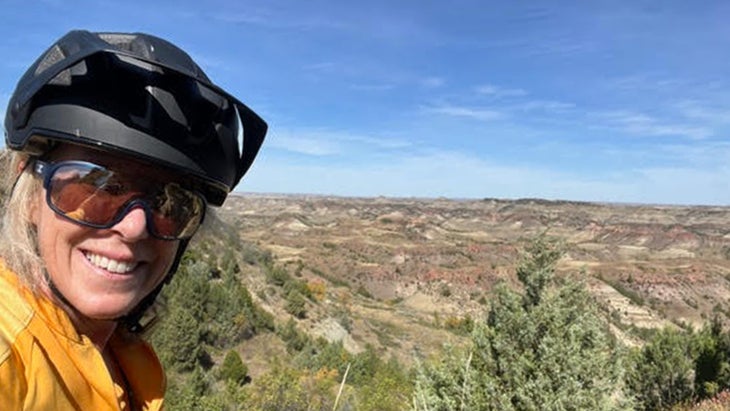
“Travel is sort of like riding your mountain bike on a technical trail,” says Stephanie Pearson, 54, a professional travel writer who’s been globetrotting for more than 30 years. “You have to be in a similar flow space to navigate foreign languages, customs, and travel logistics. So I really think it does something cognitively to your brain. It also helps you reset and focus and see the world in a different way.”
Pearson adds that she’s felt a similar level of focus and challenge on trips near home as to far-flung places like Bhutan and New Zealand. As long as there’s an element of awe, discovery, and getting out of your comfort zone, she says, your mind and body stand to benefit.
“You don’t have to fling yourself across the world to have an awesome adventure. You can drive to a nearby park or city that you’ve never visited and have a rewarding experience,” Pearson says. “The benefit lies in having that curiosity.”
Corey Buhay is a freelance writer and editor based in Boulder, Colorado. She is a member of the U.S. Ice Climbing Team, which takes her to Korea, Switzerland, Czech, and Slovakia each winter. She dreams of one day being able to travel when the weather is actually warm. Her recent stories for ���ϳԹ��� range from mountaineering bromance, with “After 50 Years of Friendship, These Alpinists Just Bagged (Another) Unclimbed Peak,” to trail-running records in “Forget Pumpkin Spice Lattes, It’s FKT Season,” to loss in the mountains, with “Years After My Mentor Died in the Backcountry, I Retraced His Final Footsteps.”
